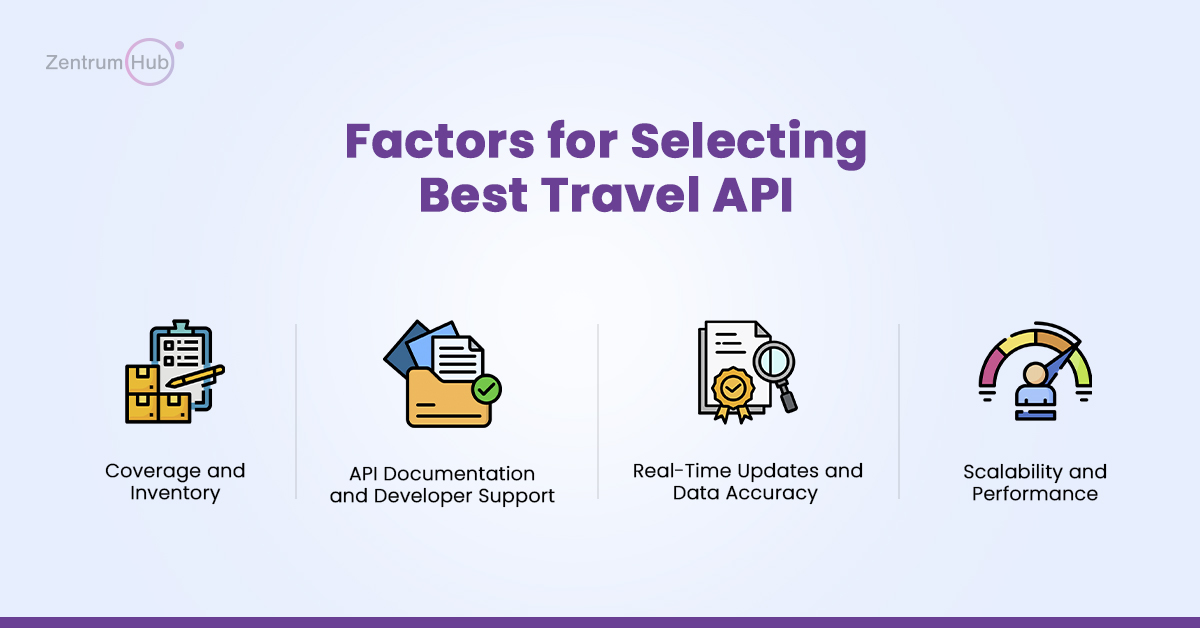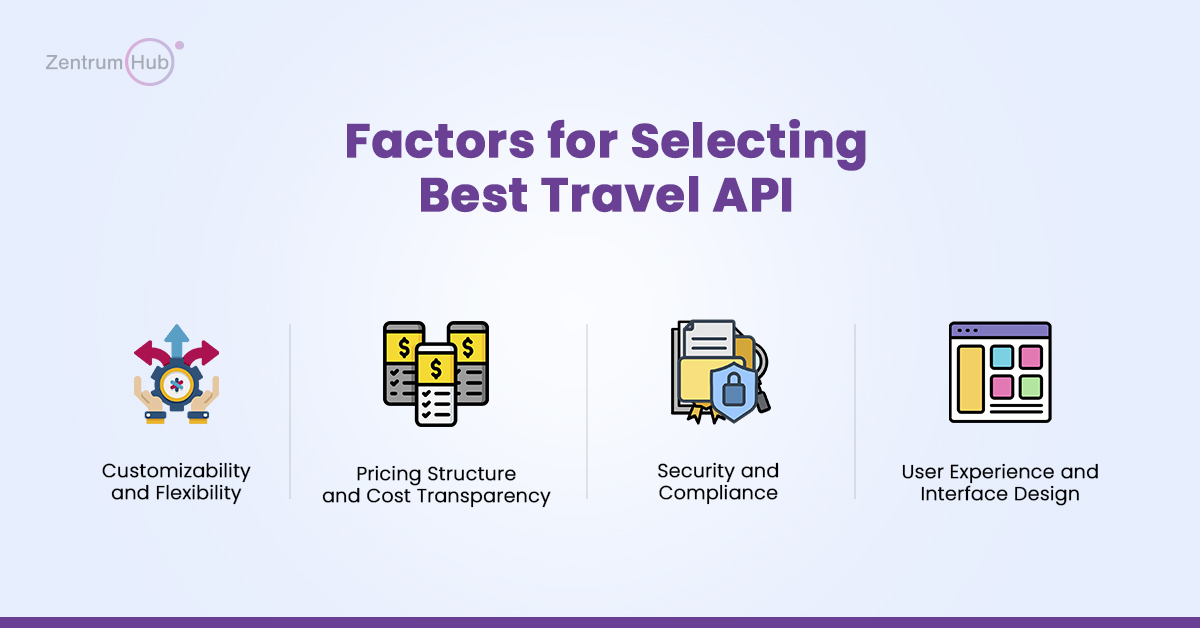Meet us at

New Delhi
25-27 Feb 2026

ITB Berlin
3–5 Mar 2026

DWTC, Dubai
4 – 7 May 2026

New Delhi
25-27 Feb 2026

ITB Berlin
3–5 Mar 2026

DWTC, Dubai
4 – 7 May 2026

The right travel API not only expands the services available on your platform but also enhances the user experience, enabling faster booking processes and personalized travel options.
However, selecting the best travel API requires careful evaluation, as various factors influence its functionality and suitability for your business model.
In this blog, we’ll examine eight key factors to consider when choosing a travel API for your business.
With a focus on travel API, hotel API, and hotel booking API solutions, we’ll provide insights to help you make an informed decision for a successful travel API integration.

One of the first considerations is the API’s inventory scope. Different travel APIs offer varying levels of access to hotels, airlines, car rentals, and other travel services.
Assessing the API’s coverage is crucial, as it determines the breadth of options available to your customers.
An API with a broad and diverse inventory lets your platform cater to a larger audience and meet a wide range of travel needs.
A well-documented API with strong developer support is essential for smooth integration.
Comprehensive documentation saves time by providing clear instructions and code samples, helping developers understand the API’s structure and functionality.
A user-friendly API with adequate support reduces the risk of integration errors, enhances development
speed, and ensures a reliable customer experience.
Also Read Travel APIs: The Cost of Integration for OTAs
Travel data, especially in sectors like hotel and airline booking, changes frequently. A reliable travel API should offer real-time updates on availability, pricing, and itineraries.
Accurate, real-time data enhances customer trust and minimizes issues like booking cancellations or price discrepancies, which could otherwise harm the user experience.

The best travel APIs are built to handle high volumes of data requests and deliver fast performance, even during peak times.
Scalability becomes essential if you anticipate significant growth in users and bookings.
An API that handles scaling efficiently ensures a smooth booking experience for users, even during seasonal peaks or promotional campaigns.
Flexibility is crucial as it enables businesses to personalize the API experience for their users.
Some APIs offer more customization options, allowing you to tailor search parameters, filter results, and control the API’s overall appearance.
Customizable APIs provide more control over user experience, enabling you to build a unique, branded platform that stands out.
Also Read Travel API Integration: Types, Pricing, Benefits & Timeline
The pricing model is a critical factor, especially for small or mid-sized travel platforms with limited budgets.
Travel API pricing can vary based on usage volume, functionality, and the type of data accessed.
Ensure the pricing model fits your budget and aligns with your projected usage to avoid unexpected costs.
Data security and compliance are paramount when handling personal and payment data.
An ideal travel API should meet industry standards for data protection, especially if your platform deals with sensitive customer information.
Security-compliant APIs help build customer trust and protect your business from potential legal and financial liabilities.
Finally, consider the overall user experience (UX) the API will provide. An API with a well-designed interface ensures a seamless, engaging booking process for users.
A smooth, intuitive user experience is essential for customer retention and satisfaction, helping you convert visitors into loyal customers.
Choosing the right travel API requires a strategic approach, evaluating factors such as coverage, scalability, real-time updates, security, and user experience.
Whether you’re integrating a hotel API, hotel booking API, or a full-scale travel API, each of these factors plays a critical role in delivering a robust, user-friendly, and secure travel platform.
Invest time in evaluating multiple APIs, compare their features, request demos if available, and analyze how well each one aligns with your business objectives.
By focusing on these eight key factors, you can select a travel API that meets your current needs and supports future growth, ensuring a positive experience for your users and a competitive edge in the dynamic travel industry.
